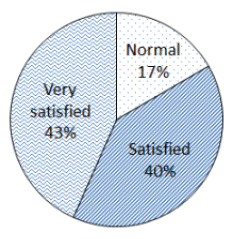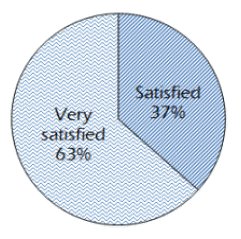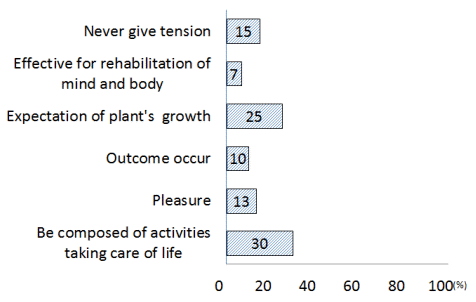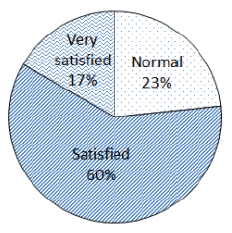Introduction
Materials and Method
1. Participants
2. Research design
3. Horticultural activity program for mothers to improve their relationship with children
Table 1
4. Measurements
5. Data analysis
Results and discussion
1. Demographic information
Table 2
| Variable | Horticultural activity (HA) (n=30) | Control (n=30) | Significancez | |
|---|---|---|---|---|
|
|
||||
| Mean (SD) | ||||
|
|
||||
| Age (years) | 36.9 (3.6) | 37.6 (3.2) | NS | |
|
|
||||
| N (%) | ||||
| Educational level | ||||
| High school | 10 (33.3) | 10 (33.3) | NS | |
| Bachelor degree | 20 (66.7) | 17 (56.7) | ||
| Master degree | 0 (0.0) | 3 (10.0) | ||
| Occupation | ||||
| Housewife | 24 (80.0) | 20 (66.7) | ||
| Professions | 2 (6.7) | 4 (13.3) | NS | |
| Office job | 1 (3.3) | 3 (10.0) | ||
| Business owners | 2 (6.7) | 1 (3.3) | ||
| Others | 1 (3.3) | 2 (6.7) | ||
| Religion | ||||
| Christian | 7 (23.3) | 7 (23.3) | ||
| Buddhism | 8 (26.7) | 2 (6.7) | NS | |
| Catholic | 1 (3.3) | 3 (10.0) | ||
| Atheist | 14 (46.7) | 18 (60.0) | ||
|
|
||||
| Monthly income | ||||
| (unit: 1000 won) | ||||
| Below 1,000 | 1 (3.3) | 1 (3.3) | ||
| 1,000-2,000 | 2 (6.7) | 1 (3.3) | NS | |
| 2,000-3,000 | 6 (20.0) | 3 (10.0) | ||
| 3,000-4,000 | 6 (20.0) | 14 (46.7) | ||
| Above 4,000 | 15 (50.0) | 11 (36.7) | ||
|
|
||||
| Number of Child | ||||
| 1 | 8 (26.7) | 8 (26.7) | ||
| 2 | 19 (63.3) | 19 (63.3) | NS | |
| 3 | 2 (6.7) | 3 (10.0) | ||
| 4 | 1 (3.3) | 0 (0.0) | ||
Table 3
| Variable | HA (n=30) | Control (n=30) | Significancez |
|---|---|---|---|
|
|
|||
| Pre-test | |||
|
|
|||
| Parenting stressy | 46.4 (9.8)x | 45.8 (11.3) | NS |
| Emotional empathyw | 98.9 (9.5) | 98.0 (9.2) | NS |
| Parent efficacyv | 54.8 (4.7) | 52.9 (4.9) | NS |
| Self esteemu | 85.6 (10.4) | 85.7 (8.5) | NS |
y Parenting stress survey (Shin, 1997).
w Emotional empathy survey (Kim, 2011).
v Parent efficacy survey (Shin, 1997).
u Self esteem survey (Kang, 1986).
2. Effectiveness of the horticultural activity program for the improvement of the relationship between mother and child
Table 4
| Variablex | Group | Pre-test (n=30) | Post-test (n=30) | F y | Significance z |
|---|---|---|---|---|---|
|
|
|||||
| Mean (SD) | |||||
|
|
|||||
| Stress related child's | HA | 18.3 (5.3) | 17.5 (4.7) | 44.4 | *** |
| character | Control | 18.0 (6.0) | 18.1 (5.6) | ||
|
|
|||||
| Stress caused relation with child | HA | 20.6 (4.5) | 19.7 (4.0) | 8.7 | ** |
| Control | 20.6 (4.5) | 21.2 (4.5) | |||
|
|
|||||
| Stress related learning expectation | HA | 7.5 (2.3) | 7.3 (2.0) | 40.1 | *** |
| Control | 7.1 (2.5) | 7.1 (2.5) | |||
x Parenting stress survey (Shin, 1997).
Table 5
| Variablex | Group | Pre-test (n=30) | Post-test (n=30) | F y | Significance z |
|---|---|---|---|---|---|
|
|
|||||
| Mean (SD) | |||||
|
|
|||||
| Self-abasement | HA | 16.1 (3.0) | 17.9 (3.1) | 20.7 | *** |
| Control | 16.8 (2.3) | 16.5 (2.2) | |||
|
|
|||||
| Relationship with others | HA | 25.8 (3.2) | 26.3 (3.4) | 3.9 | * |
| Control | 25.5 (3.4) | 25.2 (3.4) | |||
|
|
|||||
| Leadership and popularity | HA | 20.1 (3.2) | 20.8 (2.5) | 6.8 | ** |
| Control | 19.7 (2.7) | 19.4 (2.6) | |||
|
|
|||||
| Assertiveness and anxiety | HA | 23.5 (3.3) | 24.2 (2.7) | 3.2 | * |
| Control | 23.8 (3.2) | 23.6 (3.2) | |||
x Self esteem survey (Kang, 1986).
Table 6
| Variablex | Group | Pre-test (n=30) | Post-test (n=30) | Fy | Significance z |
|---|---|---|---|---|---|
|
|
|||||
| Mean (SD) | |||||
|
|
|||||
| Satisfaction as parents | HA | 31.4 (4.1) | 32.7 (3.5) | 10.6 | *** |
| Control | 30.4 (4.7) | 30.3 (4.2) | |||
|
|
|||||
| Anxiety and frustration as parents | HA | 11.5 (3.9) | 10.3 (3.2) | 13.9 | *** |
| Control | 11.0 (3.2) | 11.3 (3.1) | |||
|
|
|||||
| Concern and interest about parents' role | HA | 11.8 (1.8) | 11.7 (1.6) | 0.6 | NS |
| Control | 11.5 (1.9) | 11.2 (2.0) | |||
x Parent efficacy survey (Sin, 1997).
Table 7
| Variablex | Group | Pre-test (n=30) | Post-test (n=30) | F y | Significance z |
|---|---|---|---|---|---|
|
|
|||||
| Mean±SD | |||||
|
|
|||||
| Emotional sympathy | HA | 24.3 (3.5) | 24.1 (3.4) | 0.1 | NS |
| Control | 24.7 (3.4) | 24.7 (3.4) | |||
|
|
|||||
| Empathic concern | HA | 74.7 (7.9) | 75.4 (8.6) | 1.0 | NS |
| Control | 73.3 (8.0) | 73.2 (8.0) | |||
x Emotional empathy survey (Kim, 2011).
3. Satisfaction survey on the horticultural activity program
Fig. 2













